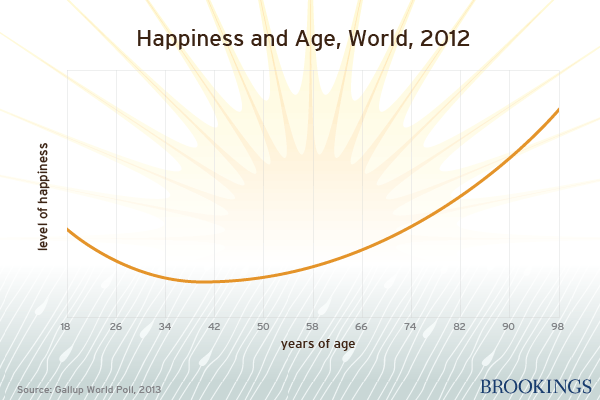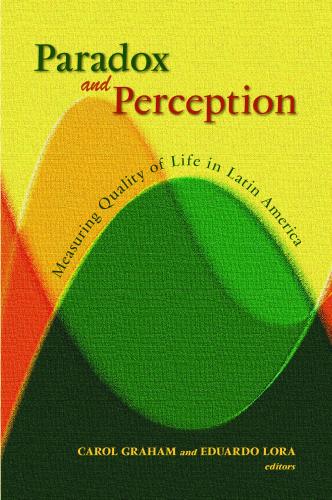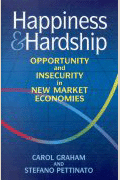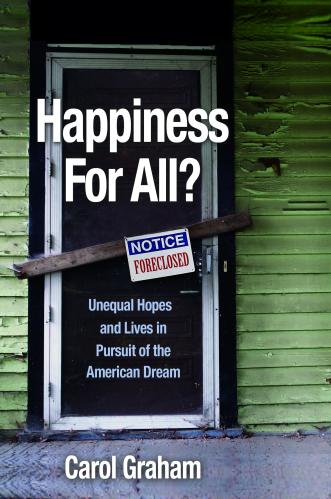“Happiness.” “Contentment.” “Subjective well-being.” Can we measure how happy people are and if so, what can we do with this information? In this podcast, Carol Graham, the Leo Pasvolsky Senior Fellow and author of The Pursuit of Happiness: An Economy of Well-Being, explains how happiness/well-being research works and why it matters for public policy in the U.S. and globally.
In the podcast, Graham explains two dimensions of understanding well-being, the “Benthamite/hedonic” and the “Aristotelian/eudemonic.” She explained them in this earlier publication:
Those of us involved focus on two distinct dimensions: hedonic well-being, a daily experience component; and evaluative well-being, the way in which people think about their lives as a whole, including purpose or meaning. Jeremy Bentham focused on the former and proposed increasing the happiness and contentment of the greatest number of individuals possible in a society as the goal of public policy. Aristotle, meanwhile, thought of happiness as eudemonia, a concept that combined two Greek words: “eu” meaning abundance and “daimon” meaning the power controlling an individual’s destiny.
SUBSCRIBE TO THE PODCAST ON ITUNES »
Show notes:
• “Why Aging and Working Makes us Happy in 4 Charts,” Carol Graham
• Happiness Around the World, Carol Graham
• “The Decade of Public Protest and Frustration with Lack of Social Mobility,” Carol Graham
• “Evidence for a midlife crisis in great apes consistent with the U-shape in human well-being,” Andrew Oswald and others
• “You Can’t Be Happier than Your Wife: Happiness Gaps and Divorce,” Cahit Guven and others
• Aristotle’s definition of happiness
• The life of philosopher Jeremy Bentham
• Gallup World Poll
The Happiness and Age Curve, World, 2012

See more charts like this in Carol Graham’s newest post on the relationship among work, age and happiness.








Commentary
PodcastMeasuring the Pursuit of Happiness
March 28, 2014